In the last years of her life, Ama Ata Aidoo was reluctant to do public gatherings, but, months into the pandemic, she accepted an invitation to New York University, Accra. The event was part of a new series started by the school director Chike Frankie Edozien, aimed at the local writing community. Labone Dialogues, named after the city district where the campus is located, was envisioned as a scene of cultural celebration and conversation with experts: a crossroads of literature, music, education, tech, and politics. It was also a space of inspiration: to show aspiring artists that they, too, could do it.
Aidoo, then five months shy of 80, was one of the last few living pioneers of the First Generation in African literature: an icon whose six-decade career — spanning novels, feminist and political theoretics, plays that made her Africa’s first published female playwright at age 23, and a stint as Ghana’s Minister for Education — merited constant celebration. Although she had roused generations after her — cited by Chimamanda Ngozi Adichie and Tsitsi Dangarembga and sampled by Burna Boy — it still felt like the culture needed an occasional reminder of her trailblazing contribution.

And at Labone Dialogues, on a mid-October evening in front of a small crowd of writers and readers, Aidoo got her due yet again. When she died in May, aged 81, there was not another lamentation for an artist appreciated only after death but a toast to a life of spirited accomplishment.
After Aidoo came a roster of writers carefully selected by Edozien: among them, Booker Prize finalist and Open Country Mag cover star Maaza Mengiste and Windham-Campbell Prize winner Jennifer Makumbi. The series became an avenue for authors to read their work before an audience and sell books, go to lunch, perhaps provide mentorship to local writers who otherwise have no access to them.
“I wanted any one of these people who are just starting their writing journey to know that it’s quite possible to reach the highest heights coming out of where we come from,” Edozien told me about his guests. “And that they can work hard towards that. And can say to themselves, ‘Just because I’m in this little corner of Ghana or Nigeria, or wherever, it does not mean that my book, if I’m able to get it done, cannot be equally wonderful and even get some attention outside.’”
This October, exactly three years after hosting Aidoo, Labone Dialogues will be the unlikely venue of the year’s most important event in African literature: “Re-claiming the Narrative,” billed as an arts, culture, and ideas symposium but with the guest list and draw of a major book festival. Its quartet of veteran headliners — the Nobel laureate Wole Soyinka and the novelists Aminatta Forna, Chris Abani, and Makumbi — have between them a level of traditional star power that African literary festivals have barely mustered in years.
They lead a procession of 30 authors, including Pulitzer Prize winning poet Gregory Pardlo; previous guests Haruna Ayesha Attah and Abubakar Adam Ibrahim; novelists Femi Kayode, Sulaiman Addonia, Nozizwe Cynthia Jele, Ondjaki, Tendai Huchu, Mohale Mashigo, and Nana Ekua Brew-Hammond; essayists Sisonke Msimang, Nana Darkoa Sekyiamah, and Sarpong Osei Asamoah; poets Su’eddie Vershima Agema, Wana Udobang, and Dami Ajayi; writer-filmmaker Dilman Dila; film producer Nicole Amarteifio; journalist and Aso Times editor Socrates Mbamalu; novelist and Doek! editor Remy Ngamije; writer-musician Kalaf Epalanga; blogger Kinna Likimani; and short story writers Antony “Fui” Can-Tamakloe and Martin Egblewogbe.
Also attending, as guest of honour, is Samira Bawumia, the Second Lady of Ghana.
Across four days of panels, readings, and music, Forna, Makumbi, and Abani will deliver keynote addresses, after which they will each sit with interviewers for career retrospectives.
“Forna’s work is very interesting because it’s not always focused on the continent,” Edozien said, referring to the Sierra Leonean Scottish author’s 2013 novel The Hired Man, set in Croatia. “We don’t have to be limited to just our own people, which means that you don’t want to pigeonhole yourself as a person who is producing knowledge. And so we have her, sort of, anchoring that day and setting the stage for the rest of the weekend.”
The same goes for Forna’s co-headliners. “I think of what Chris Abani has been doing for years, where he has found a way to give many, many poets an opportunity to be published for the first time,” Edozien said. “And Makumbi: look at her work and what she’s done with telling the story of Uganda to the whole world. She’s not a person that — quote, unquote — became a star at 25. She is a very mature person who has had this immigrant experience of having to work really hard in a foreign country, to get a job, raise a family — doing all of that stuff but never quite letting go of her love of writing. And then, at a very mature age, the books not only start to come but start to fly, and are doing well. We have many, many lessons to learn from her.”
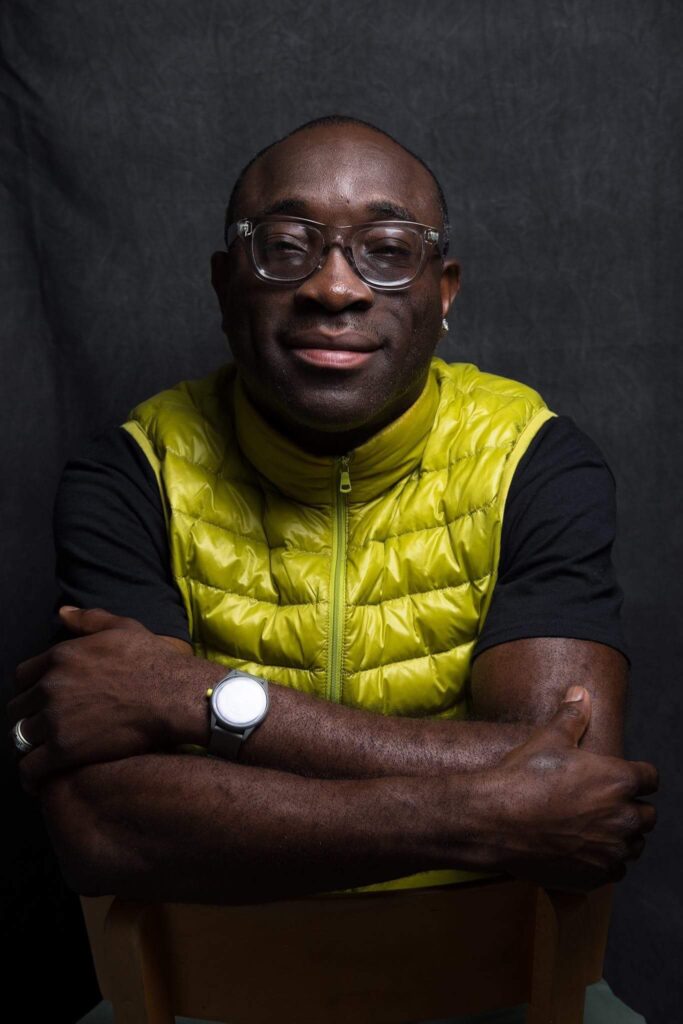
Labone Dialogues came together in a queue of coincidences. Edozien, a clinical professor of journalism at New York University, started Reporting Africa, a training program that brought American journalists to the continent, to show them the complexity and nuance of life in countries stereotyped in Western media. By 2019, his parents having died within a year of each other, he was restless and wanted a new challenge.
With a raised literary profile following his Lambda Award-winning 2017 memoir Lives of Great Men, the first by a Nigerian about being gay, he was asked by NYU to run its new campus in Accra, to do for all the disciplines what he had done for journalism. And just before the pandemic, he moved to Accra as Global Site Director.
“As a new leader, thinking about what we can do, creating programs for students, creating academic pathways, I recognized that Ghana is a place that not a lot of writers will come into,” he said. “It does not have the gigantic market that Nigeria has. But I thought to myself, well, we could celebrate local production.”
It was after the first event, in honour of the late musician Kofi Ghanaba, when he and his team collected Ghanaba’s papers into an archive, on a website, and gave copies to the University of Ghana so that scholars could access them, that he realized there was a larger purpose for the series.
“People kept saying to me, ‘No one has ever celebrated Kofi Ghanaba, and he was one of our greatest and he’s almost forgotten,’” he recalled. “And then it just struck me: you really have to celebrate artists and writers while they’re alive. Because, you know, they’ll be forgotten and they’ll be gone.” He knew then that, for the second event, he had to invite Ama Ata Aidoo.
The “Re-claiming the Narrative” symposium, the eleventh event by Labone Dialogues, has the scope of a festival because NYU wanted it to coincide with UNESCO’s selection of Accra as the World Book Capital for 2023. It will take place one week after the Pa-Gya Literary Festival, organized by the Writers Project of Ghana, who, alongside SocialiteAF, are also partnering with NYU for the symposium.
Where the Anglophone literary world mostly keeps its gaze to itself, and at African festivals, Francophone writers are now often represented, at Re-claiming the Narrative, there are Lusophone writers: Ondjaki and Epalanga, both Angolan.
“At the end of the day, what I want is for people to learn about other African writers,” Edozien said. “And part of that is making sure that we have an eye on ourselves, that we’re reading each other’s work, whether from South Africa or Botswana, Tanzania or Kenya, or Eritrea, Angola, or Guinea-Bissau. And that we’re making efforts to translate each other’s works. Because I think we have a lot of things that we can share with each other in our journey as storytellers.”
As the writers prepare to converge on Accra, Labone Dialogues has made access a priority. All the panels, readings, and talks are free to attend and will be livestreamed on YouTube. On the ground, too, will be the local press: newspapers, radio, TV.
“What we’re trying to say is that we have to tell our own story, it cannot be defined by other people,” Edozien said. “All of us, African writers, have a stake in how our continent and our countries and our communities are portrayed in literature. The goal is to take advantage of the fact that we can put the spotlight on a crowd here in Accra, because it’s the World Book capital of the world.” ♦
“Re-claiming the Narrative” will be held at the NYU Accra Gardens, No. 7 Fourth Norla Street, Labone, Accra, from 9 a.m. till sundown. RSVP at nyuaccra@nyu.edu. Events will be livestreamed on Facebook and YouTube: @NYUAccra. More information can be found here: https://bit.ly/labonedialogues.
If you love what you just read, please consider making a PayPal donation to enable us to publish more like it.
No One Covers African Literature and Film Like Open Country Mag
— Cover Story, September 2021: Chimamanda Ngozi Adichie Is in a Different Place Now
— Cover Story, July 2021: How Teju Cole Opened a New Path in African Literature
— “Our Literature Has Died Again”: Nigerian Writing in the Era of the Nomadists
— Sarah Ladipo Manyika Is Curious About Culture Icons
— Caleb Azumah Nelson on Small Worlds, Open Water, and Black Spaces
— Cover Story, March 2023: Rita Dominic‘s Visions of Character
— The Making of Mami Wata, Nigeria’s First Film to Premiere at Sundance
— The O. Henry Prize Series Opens to African Magazines (Exclusive)
— Binyavanga Wainaina‘s Great Scatter of Work (Exclusive)
— How Dakore Egbuson and Tony Okungbowa Traverse Trauma in YE!
— Writing Omo Ghetto: The Saga, Nollywood’s Highest Grossing Film of All-Time
— Cover Story, January 2021: Maaza Mengiste‘s Chronicles of Ethiopia
— Cover Story, December 2020: How Tsitsi Dangarembga, with Her Trilogy of Zimbabwe, Overcame
— With God’s Children Are Little Broken Things, Arinze Ifeakandu Garners Breakout Acclaim
— Cover Story, April 2022: The Next Generation of African Literature















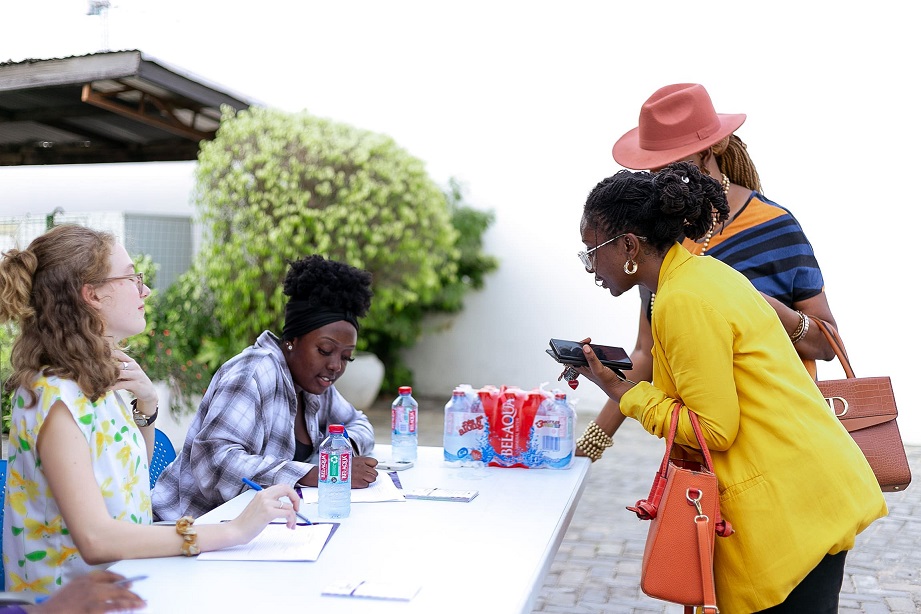


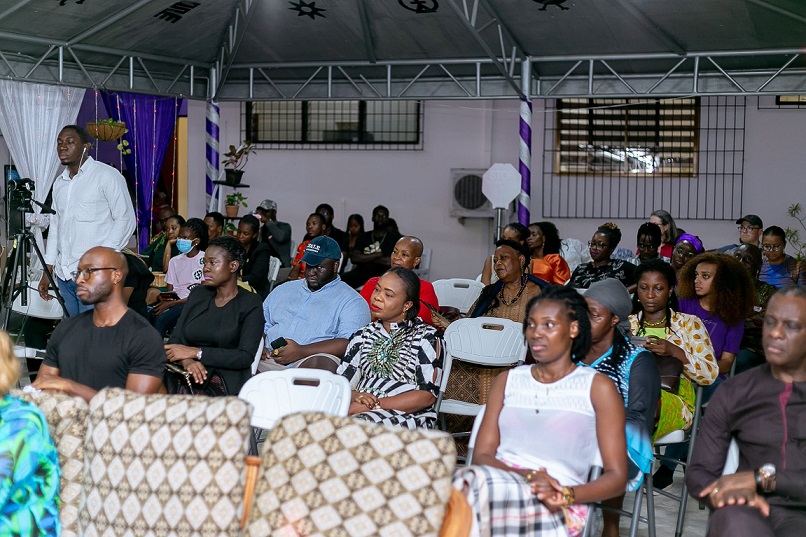
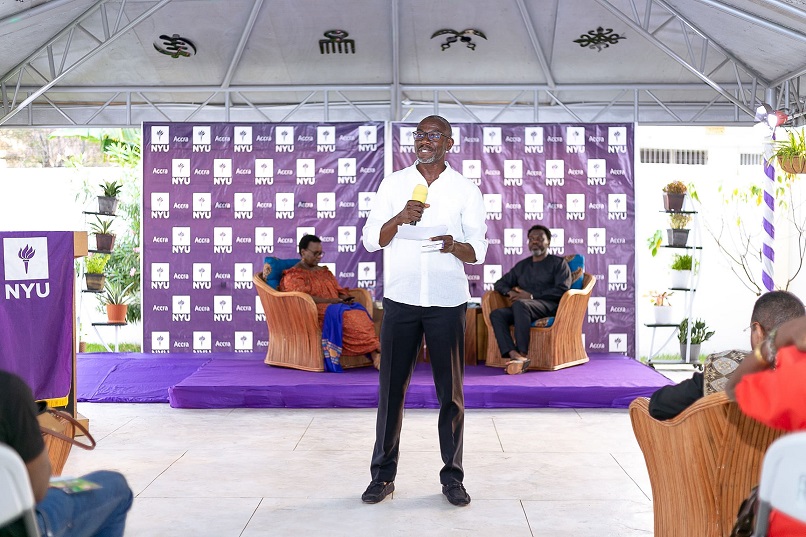

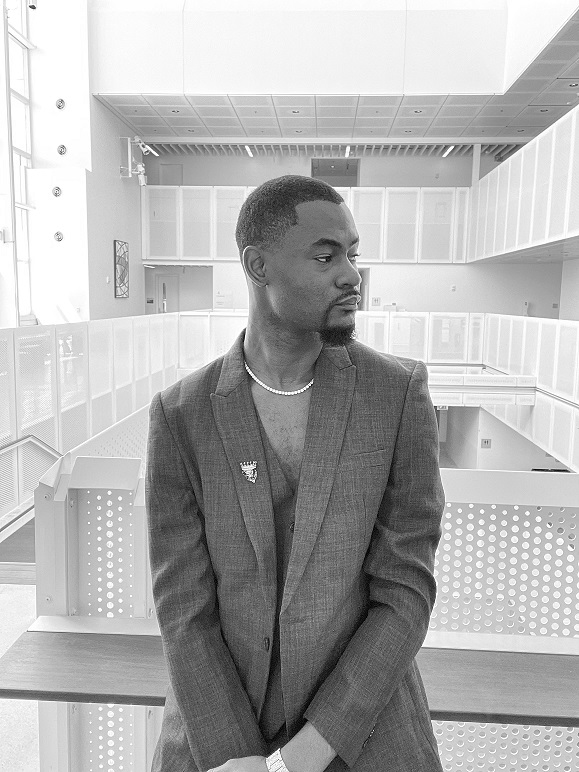



One Response
I love reading and learning. As a Jamaican now living in Ghana, I feel it is paramount that I engage in the history of my ancestors.
These events warm my soul like honey and lemon on my empty stomach.
Please keep me informed of future events
One day I will tell my story.